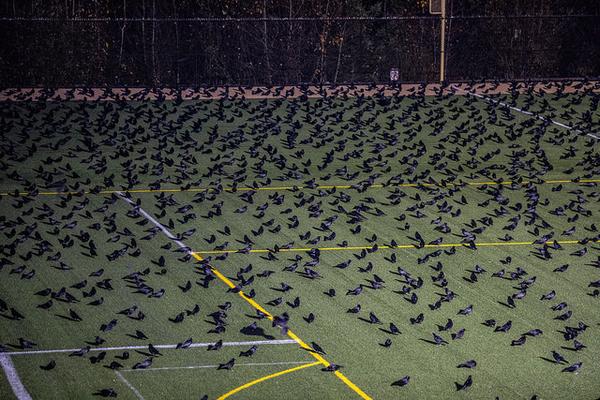Crow and Raven Behavior and Communication


Background
My lab studies the social behavior and vocal communication of free-living birds. The American Crow (Corvus brachyrhynchos) and Common Raven (Corvus corax) are intelligent birds that use many complex vocalizations and behaviors to communicate. Despite a significant amount of previous research, we still do not fully understand the meaning of many call types in these taxa. To better understand Corvid vocal communication, we 1) use audio recordings to categorize call types in these species by acoustic and structural variables, 2) link call types to specific behavioral/situational contexts, and 3) record the behavioral responses of wild birds in the field to the audio playback of experimentally constructed call sequences.
Student Outcomes
Students working on this project will receive training and practice in experimental design, project organization and team work, field biology techniques, data analysis, relevant computational approaches (primarily using R), and presentation of findings in a written (poster) or oral report. Students will be engaged in all aspects of the research process, from background research and hypothesis/prediction formulation to experimental design and methods troubleshooting to data collection, analysis, and presentation.
Student Qualifications
Ability to travel to field sites within western Washington
Ability to work cohesively and positively with a diverse team of peers with different strengths and experiences
Willingness to work in the field
Willingness to learn and try computational approaches using the R programming language
Student Responsibilities (will train)
Conduct field work, sometimes in inclement weather
Use audio analysis software
Use R programming to organize, visualize, and analyze datasets
Read relevant scientific papers
Present findings
Time Commitment
B Bio 495 (Autumn Quarters) + time out of class
and/or
At least 2 quarters of independent research, 6-15 Hours per week (2-5 credits)
